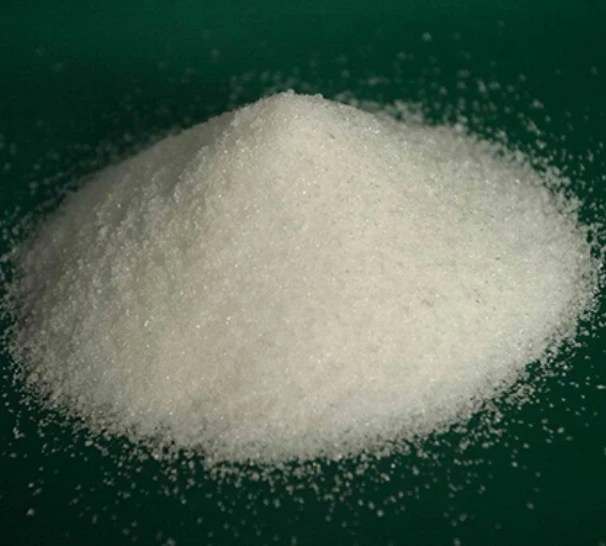Innovative Solutions for Industrial Flocculants in Water Treatment and Environmental Applications
The Role of Industrial Flocculants in Water Treatment
In today's industrial landscape, the need for effective water treatment solutions has never been more critical. With increasing industrial activities and the consequential generation of wastewater, the application of flocculants has emerged as a key technology in enhancing the efficiency of water treatment processes. Industrial flocculants play a vital role in the coagulation and sedimentation processes, ensuring that water is purified and safe for discharge or reuse.
Understanding Flocculants
Flocculants are chemical agents that promote the aggregation of fine particles suspended in water, forming larger clusters known as flocs. These flocs can then be easily removed from the water through sedimentation or filtration. There are two primary types of flocculants inorganic and organic. Inorganic flocculants often include aluminum sulfate and ferric chloride, while organic flocculants typically consist of polyacrylamide and various natural polymers.
How Flocculants Work
The mechanism behind flocculation involves several stages. Initially, the flocculant is mixed with the water containing suspended solids. This mixing process leads to charge neutralization, where the flocculant molecules bind to the negatively charged particles. As these particles aggregate, they form larger flocs capable of settling at the bottom of the treatment tank. This process not only simplifies the removal of suspended solids but also reduces the turbidity of the water, making it clearer.
The efficiency of flocculation can be influenced by various factors, including the concentration of the flocculant, mixing speed, and the characteristics of the particles present in the water. Thus, careful optimization and monitoring are essential to achieve the desired treatment outcomes.
Applications of Industrial Flocculants
industrial flocculant

Industrial flocculants find applications across various sectors, including mining, oil and gas, food and beverage, and municipal wastewater treatment. In the mining industry, flocculants help in the separation of valuable minerals from gangue, improving recovery rates and minimizing environmental impact. In the oil and gas sector, they facilitate the treatment of produced water, ensuring that contaminants are removed to meet regulatory standards.
The food and beverage industry also benefits from flocculants, as they assist in clarifying juices and beverages. Furthermore, in municipal wastewater treatment plants, flocculants play a crucial role in removing solid waste, which is essential for producing clean water. Proper application leads to higher removal rates of suspended solids, nutrients, and pathogens, thereby enhancing the overall efficiency of wastewater treatment processes.
Environmental Considerations
Despite their significant benefits, the use of industrial flocculants is not without concerns. The potential toxicity of some flocculant chemicals, particularly synthetic organic polymers, has raised questions about their environmental impact. Consequently, there has been a growing focus on developing eco-friendly or biodegradable flocculants, derived from natural sources, which pose lesser risks to aquatic ecosystems.
Moreover, the disposal of sludge generated from the flocculation process poses a challenge. Effective sludge management is necessary to avoid negative impacts on land and water resources. Industries are increasingly investing in advanced treatment technologies to ensure that sludge is managed sustainably, including the use of anaerobic digestion and composting.
Conclusion
Industrial flocculants are indispensable tools in modern water treatment processes, offering effective solutions for removing suspended solids from wastewater across various sectors. As industries continue to seek ways to improve operational efficiency while adhering to environmental regulations, the role of flocculants is set to expand. However, the challenge lies in balancing efficacy with environmental sustainability. The advancement of greener technologies and the continuous research into biodegradable alternatives will guide the future of flocculation in industrial applications. As such, the responsible use of flocculants will play a crucial part in ensuring that industrial practices contribute to sustainable water management and environmental conservation.
-
Pbtc Scale InhibitorPBTC: A Scale Protector for Industrial Water TreatmentNewsAug.05,2025
-
Organic Phosphonate: An Efficient Defender in the Field of Scale InhibitionNewsAug.05,2025
-
Hydrolyzed Polymaleic Anhydride: Green Pioneer in Scale Inhibition FieldNewsAug.05,2025
-
PAPEMP Polyamino Polyether Methylene Phosphonic Acid For SaleNewsAug.05,2025
-
Flocculant Water Treatment: A Pioneer in Purification in the Field of Water TreatmentNewsAug.05,2025
-
Benzyl Isothiazolinone: An Efficient and Broad-Spectrum Antibacterial Protective GuardNewsAug.05,2025





